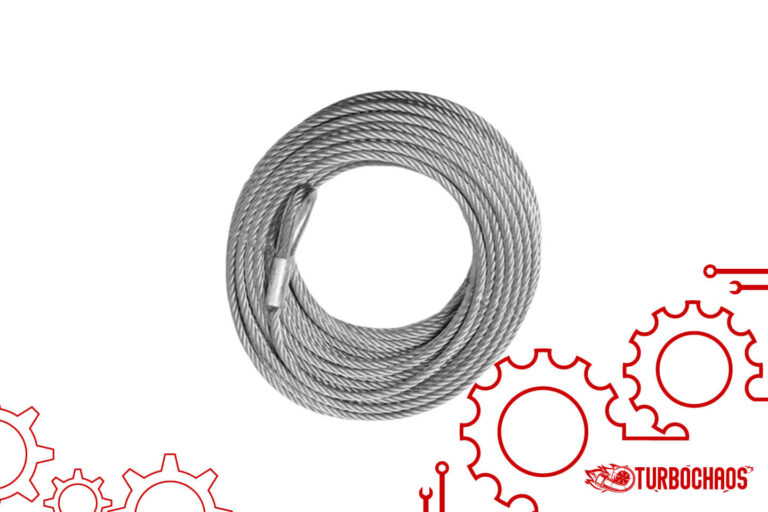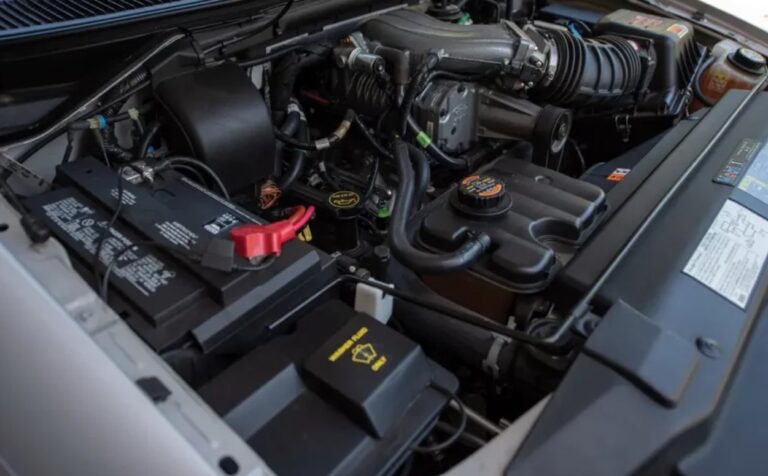Are Diesel Engines Heavier Than Petrol? Quick Answer
In this article, I will describe Are Diesel Engines Heavier Than Petrol? It’s a valid question why diesel is preferred over gasoline for large cars. It is an excellent question because it asks, “Why don’t they use gasoline instead of diesel in large vehicles?”
After all, gasoline emits less pollution than diesel. Compared to gasoline engines of comparable size, diesel engines emit significantly fewer emissions.
Gasoline engines are at least more fuel-efficient than diesel ones. Correct? No. The opposite is true.
In many cases, diesel engines are more fuel-efficient than gasoline engines of comparable capacity by at least 33%.
In other words, a diesel engine of equivalent size goes nine (9) miles on a gallon of diesel for every six miles a gasoline engine travels on a gallon of gas.
Diesel engines produce fewer pollutants and have better fuel efficiency. However, these are not the main factors.
Neither is the explanation for why diesel is used in heavy vehicles rather than gasoline. The cause of this is torque. The low-end torque of diesel engines is significantly higher than that of gasoline engines.
Are Diesel Engines Heavier Than Petrol?
Yes, diesel engines are heavier than petrol. Because they are built to withstand higher compression ratios, diesel engines are often heavier than gasoline engines.
Diesel engine combustion is an auto-ignition process, meaning it happens due to the high temperature created by air compression.

There must be a compression ratio of 12 for this to happen. Diesel engines’ efficiency rises as the compression ratio does. An engine’s highest pressure likewise rises with a larger compression ratio.
Compression ratio is a tradeoff between engine efficiency on the one hand and cost & weight on the other in the construction of diesel engines.
A maximum compression ratio of 23 has been attained, with the typical range being 14 to 17. To endure the highest pressure, diesel engines are heavier than petrol engines.
Are Diesel Engines Louder Than Petrol?
Indeed, diesel vehicles are noisier than gasoline ones. This is a result of how the fuel is converted into energy.
Diesel engines have substantially more vigorous combustion, which causes more vibrations—making a diesel engine roar louder.

Low-End Torque And How It Is Different From Horsepower?
The force that a rotating mechanism produces is known as its torque. Torque, for instance, is the amount of force an engine crankshaft generates.
Low-end torque, also known as low revolutions per minute (rpm), is the torque an engine can produce through the crankshaft at low speeds.
The amount of torque is independent of the crankshaft’s rotational speed during the generation of that force.
Whether the shaft is turning at 15,000 rpm or one revolution per minute, if it produces one foot-pound of force, the torque is always one foot-pound.
On the other hand, horsepower does consider the rotation rate of a rotating mechanism. Additionally, horsepower explains how much torque the rotating mechanism generates.
This is so because horsepower is affected by torque. Torque times rpm is the equation for horsepower.
Because diesel engines have produced higher torque than gasoline-powered engines, they are used in large vehicles instead of gasoline.
A gasoline engine starts producing more horsepower than a diesel engine of the same size at a specific rpm. This is due to diesel engines’ maximum rpm being roughly half that of a gasoline engine.
However, a diesel engine will produce more horsepower than a gasoline engine of equivalent size up to its maximum rpm.
Low-End Torque Is Critical In The Trucking Business
A diesel engine’s ability to produce torque and horsepower at low rpm is essential for lifting heavy loads.
According to TruckFreighter.com, The torque required by semi-trucks is produced by diesel engines and gasoline, which also gives the engine a higher power-to-weight ratio.
This is true whether the truck travels in the mountains or on flat roads for extended periods.
Why Diesel Engines Produce More Torque Than Gasoline Engines?
Unlike gasoline, diesel fuel has a higher compression resistance, allowing diesel engines to produce more torque than gasoline engines.
Mechanical engineers may create compression engines for diesel fuel since diesel fuel is stable and has low compression resistance.
Diesel engines have more torque because they are compression-fired engines instead of gasoline engines, which are spark-fired.

Compression Engines Versus Spark-Fired Engines
Spark-fired combustion engines are what gasoline engines use. This indicates that a spark from a spark plug ignites the fuel inside the engine cylinders. Diesel fuel is compressed in diesel engines until it automatically ignites.
All fossil fuels eventually self-ignite when compressed. What kind of combustion engine a fuel can power depends on when the fuel automatically ignites.
More specifically, whether or not a fuel is suitable for a compression engine depends on how much pressure it can withstand.
Thermal Efficiency And Combustion Engines
The thermal efficiency ratings produced by a fossil fuel auto-ignition engine are significantly higher than those of a spark ignition engine.
This is because thermal efficiency measures the temperature difference between fuel entering an engine and the temperature change it causes when burned in an engine. The engine is more thermally efficient the bigger the difference.
Fuel Efficiency, Power, And Torque Are All Influenced By Thermal Efficiency
Once more, the thermal efficiency of an engine is determined by the temperature differential between the fuel entering the engine and the exhaust leaving the engine.
Thermal efficiency, however, is defined differently from how it is calculated. The quantity of fuel injected into an engine turned into mechanical energy, often known as power, is the definition of thermal efficiency.
The amount of energy that enters an engine that is turned into work is the straightforward definition of thermal efficiency for the average person.
The compression ratio of an engine is what affects its thermal efficiency.
Answers for Compression Ratios in Gasoline and Diesel Engines: Why does diesel replace gasoline in large vehicles?
Again, compression makes it very difficult to break down diesel. Petroleum is not. The difference between the volume of a cylinder when the piston is at the bottom-dead center, and the top-dead center is known as the compression ratio.
The piston is located in the bottom-dead center when a cylinder is filled with vaporized gasoline. The piston rises when the cylinder is full. The fuel ignites right in the top-dead center.
Spark-fired gasoline engines have compression ratios between 8:1 and 12:1. The fuel in a gasoline engine will pre-ignite, and the engine will throw a rod if the compression ratio is any higher.
Diesel engines typically have a compression ratio between 14:1 and 25:1, which can occasionally be considerably higher. In other words, diesel can be compressed nearly twice as much as gasoline without igniting.
Because gasoline has such a poor energy density, gasoline engines are utterly ineffective without a compression engine with a ratio of 8:1 and 12:1.
In other words, gasoline engines will never have much torque compared to diesel engines because a spark will always ignite gasoline.
Torque is the primary factor in why diesel is preferred over gasoline for large vehicles. Compared to gasoline, diesel has higher compression resistance.
Diesel engines can be compression-fired because diesel fuel has more compressive resistance than gasoline. Fuel-powered vehicles cannot.
Since they can be compression-fired engines, diesel engines are thermally more efficient than gasoline engines.
They have larger compression ratios, which contributes to their increased thermal efficiency. The amount of energy released increases with the compression ratio. The torque increases with the amount of energy released. So, they use diesel instead of gasoline in huge trucks due to diesel’s higher compressive resistance.
Conclusion
Did you notice diesel engines are heavier than petrol? To ignite diesel fuel, a great deal of compression is necessary. There is less need to compress gasoline since it is more combustible and because gasoline engines employ spark plugs to ignite the fuel.
Diesel engines must have thicker and stronger cylinder walls due to the force of the compression, which makes them heavier.
Additionally, manufacturers have created lighter metal engines (aluminum, magnesium) for gasoline-powered cars to develop the most efficient vehicles feasible; this is not practical for diesel engines. Additionally, the diesel engine continues to run primarily on heavy fuels like fuel oil, which is slightly more expensive than gasoline.
Top FAQ’s
How much heavier is diesel than petrol?
Contrarily, diesel fuel has about 15% more energy by volume and is denser than gasoline.
Does diesel float on petrol?
The gasoline initially sits atop the diesel and isn’t drawn into the low-level fuel pick-up. After that, it will blend with the diesel fuel very gently.
Which engine is heavy, diesel or petrol?
Diesel engines have greater thermal efficiency than gasoline engines due to their capability of being compression-fired.

Welcome to the exhilarating world of Matt Rex, a professional car racer turned renowned vehicle enthusiast. Immerse yourself in his captivating blog as he shares heart-pounding adventures, expert reviews, and valuable insights on cars, trucks, jets, and more. Fuel your passion for speed and discover the beauty of vehicles through Matt’s engaging stories and meticulous expertise. Join the ever-growing community of enthusiasts who find inspiration and expert advice in Matt Rex’s blog—a digital hub where the thrill of speed meets the pursuit of knowledge.





![What Does A Turbo Silencer Ring Do? [Explained]](https://www.turbochaos.com/wp-content/uploads/2023/12/What-Does-A-Turbo-Silencer-Ring-Do-768x694.jpg)

